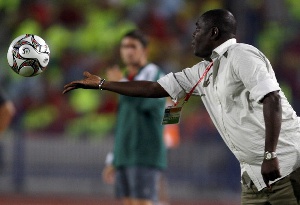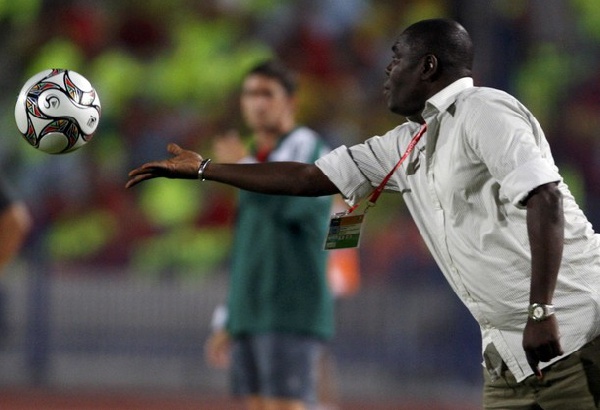 Sellas Tetteh guided the Black Satellites to win the U20 World Cup in 2009
Sellas Tetteh guided the Black Satellites to win the U20 World Cup in 2009
In the dusty corners of Kotobabi, Accra, where footballs bounced off rugged walls and dreams were shaped on gravel pitches, a young man named Sellas Tetteh began his journey, not as a star forward or a midfield maestro, but as a student of the game.
A thinker. A planner. A man who would one day etch his name into the golden pages of Ghanaian football history, not for the goals he scored, but for the legends he groomed.
Decades later, the name Sellas Tetteh stands tall.
No coach in Ghana’s rich football tapestry has led the nation’s U20 side, the Black Satellites, to three FIFA U20 World Cups and returned with such glittering rewards.
In 2009, he didn’t just take a team to Egypt, he made history. Ghana became the first African nation to win the U20 World Cup, conquering giants like England, Hungary, and finally Brazil in a tense final that ended in a shootout.
The team didn’t just lift the trophy, they swept nearly all the individual awards.
Dominic Adiyiah claimed both the Golden Boot and the Golden Ball, a rare feat that signaled dominance.
But that 2009 team was more than just a collection of talented youngsters. Under Tetteh’s wing, they became warriors, tacticians, and believers.
Many transitioned into the Black Stars setup, forming the core of the squad that finished runners-up at the 2010 Africa Cup of Nations and reached the quarterfinals of the FIFA World Cup in South Africa, the furthest Ghana has ever gone.
Still, Tetteh’s hunger wasn’t quenched.
In 2013, Ghana had missed the previous U20 edition, but under his return, the Black Satellites bounced back fiercely.
Facing powerhouses like Portugal and Chile, Tetteh once again guided his side to the podium, this time winning bronze.
Clifford Aboagye dazzled the world and walked away with the Bronze Ball.
Ebenezer Assifuah, his eyes always on goal, took home the Golden Boot with 6 goals. It was a team brimming with style and spirit, both traits instilled by their master tactician.
Then came 2015, his final U20 World Cup outing.
It wasn’t the fairytale ending many hoped for, but Tetteh still made an impression. Ghana beat Argentina and Panama, showing glimpses of brilliance, before falling to Mali in the Round of 16.
Even in exit, there was pride. A mark of consistency, and a standard that Ghanaian youth teams still chase to this day.
But this story isn’t just about trophies and tournaments.
It’s about a man who walked the long road, from local side Kotobabi Powerlines to the senior national teams of Ghana, Rwanda, and Sierra Leone.
A man who built players. Who believed in raw talent and shaped it with love, discipline, and vision.
As Ghanaians reflect on his coaching journey, one truth is undeniable, Sellas Tetteh didn’t just coach football.
He built a legacy. A legacy that started from Kotobabi and soared to the world stage.
FKA/EB
Meanwhile, watch as Derrick Maccaire opens up on challenges in kickboxing, MMA in Ghana
